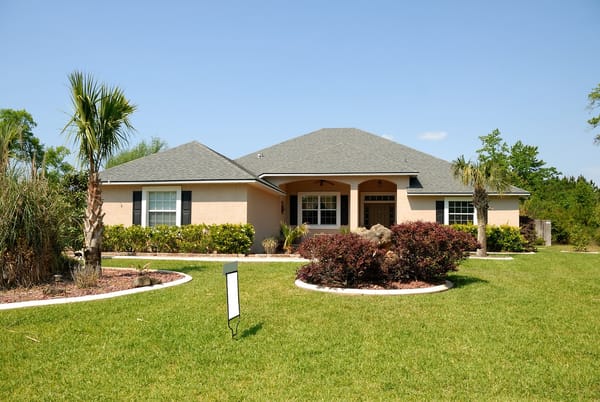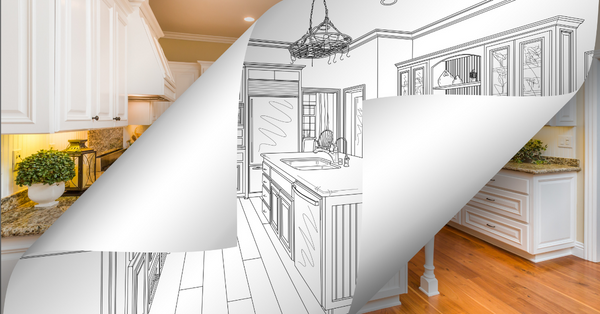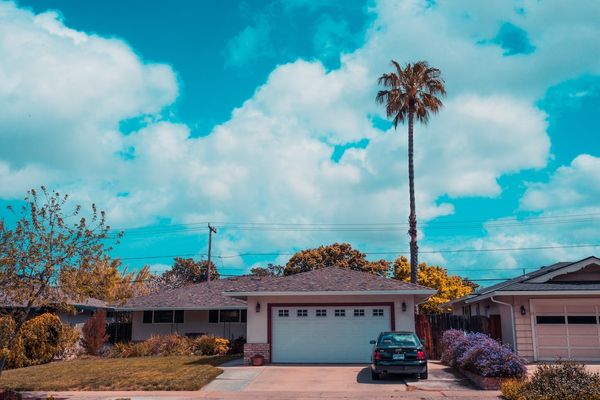Many renters struggle with the same question, "Should I buy a home?".
Let's be honest. Renting is easy! There's a lot of flexibility and financial security with renting. When you rent, you're not on the hook for big repair bills when something goes wrong in the property. You also can move at almost any time, and there's no risk of foreclosure.
Renting is simple, straightforward, and for those reasons, some people prefer it to homeownership.
However, despite the straightforward nature of renting, millions of Americans own houses and condos all across the country. If you're reading this post, you're probably wondering if you should become a homeowner too. While no article can answer that question definitively for you and every situation is different, here are five common signs that it's time to stop renting and consider buying a home.
5 Signs That You Should Stop Renting And Buy A Home
1. You Have Enough Saved for a Down Payment
One of the best places to start when deciding if you're ready to buy a home is to take a look at how much money you have saved in your bank account for a down payment.
You can also always use a rent-vs-own calculator to verify that homeownership is best for your particular circumstances. However, if you have enough saved for a down payment, then there are usually financial benefits to becoming a homeowner.
To illustrate this, let's consider a typical example with someone living in Atlanta, Georgia. Let's say that this individual is renting in the Virginia-Highland's neighborhood, which is one of the ideal neighborhoods in Atlanta to live. It's not uncommon for a 2-bed, 2-bath apartment to cost upwards of $2,000 a month ($24,000 per year).
By contrast, a 2-bed, 2-bath condo in this area of Atlanta would cost about $450,000 to buy. Let's assume that this person has 3.5% saved – about $16,000 for this specific property. At an interest rate of 2.75% with no points, the monthly mortgage payment for this condo with a 30-year mortgage would be just under $1,500 per month. Of course, there are property taxes and HOA on top of that, so let's assume another $500 for both. That makes the monthly mortgage payment about $2,000 per month, right at the base of the rental range.
However, unlike your rent, your mortgage payment gets "cheaper" every year. You'll pay $2,000 per month for 30 years, and then you'll have no more mortgage.
With rent, you can expect 2-3% increases every year. That $2,000 rent might be cheaper now, but may not be as your rent continually gets higher and never ends.
Depending on the type of mortgage loan you choose, you could need anywhere from a 3%-20% down payment. If you have a reasonable amount saved, it may be time to start considering buying a condo or a house.
2. You Feel Stable and Ready To "Settle Down"
Renting is attractive for young professionals because they may not be sure if they'll want to live in that city for the long-term. There are many scenarios of people going to school in one town and finding a job there, but they may not intend to stay there long-term. In these cases, renting makes perfect sense as it provides the flexibility to move around.
However, once you're ready to settle down in one city (that is, you cannot see yourself leaving there any time soon), then it could be time to buy a home.
As discussed earlier, it frequently makes financial sense to buy instead of rent, so once you know this city will be where you'll live for the next 2-5 years at least, then buying is likely the better option than renting.
3. You Want More Space
As a young professional, living in 600 square feet of space might be sufficient. You have a sofa, a bed, and a place to kick back and watch the game. However, once you have a family, you will likely feel quite cramped especially if kids or pets are in the picture.
Kids love back yards and they are way more convenient for taking out animals. Plus, there's plenty of research that shows that playing outdoors is healthy for children. While you can take them to parks and other outdoor activities, nothing is ever quite as convenient as just stepping out the backdoor of your home.
The only way to get that, of course, is to have a house. You may be lucky and find a rental that has a yard, but this is much unlikely. So, if you have little children or pets, you may find that it's quickly time to trade up from renting and, instead, buy a home.
4. You've Found a Home at a Good Price & Secured a Low Interest Rate
When you buy a home, you're going to want to make sure to buy something that you'll be happy with paying for long-term. You'll want to make sure you buy your home at a reasonable price and with a mortgage that has a good interest rate. If you purchase a home with at a high interest rate on your mortgage loan, then you'll either have to refinance when rates drop or keep the same interest rate while paying a higher amount in interest. Either way, it's not ideal.
Therefore, when interest rates are relatively low (as they have been during the past couple of years), that's a strong indicator to buy. You know you're going to be getting a fantastic deal on your mortgage that will make buying even more of a better decision.
5. You Have a Fantastic Credit Score
The best interest rates are typically given to those that have an excellent credit score. Unfortunately, mortgage rates increase substantially with lower scores. A 625 credit score might secure a mortgage at 0.5% higher than someone with a 750 score.
What difference does 0.5% make? Quite a bit. Here's a quick example.
Let's suppose you have a $400,000 mortgage. At a 3.5% interest rate, your mortgage payment would be $1,796. At 4%, though, your payment would be $1,909 per month. That's a difference of $114 per month!
Over the life of your loan, someone with a 625 score will pay $41,000 more than someone with 750.
So, if you don't have an excellent credit score, it may be worth improving that before you buy to save you thousands over the long run and reduce your monthly payment.
Should You Buy a Home and Stop Renting?
The answer to the question, "should I buy a home?" is almost always, yes, once you meet the conditions we've walked through in this article.
If you plan to stay in one location for several years, have a good credit score and have a significant down payment saved, then you would often be wise to stop renting and buy a home.
When you're ready to get started, SimpleShowing can connect you with a local agent in your area and make the purchase easier by giving you $5,000 on average towards your closing costs.
Contact us to get started!






